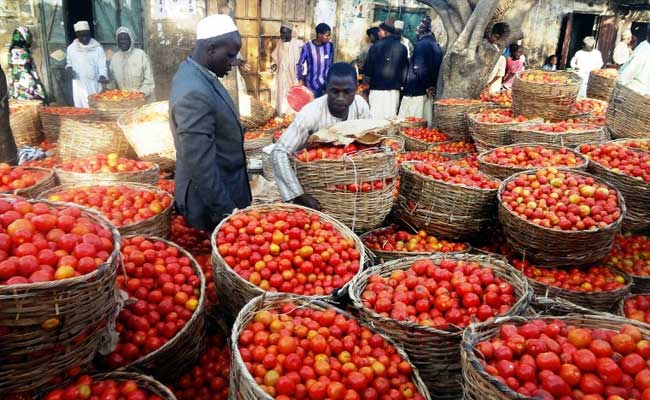The FADAMA II Additional Financing project financed by the World Bank has supported a total of 10,845 farmers in the last 10 months.
Out of these beneficiaries, 585 were youth and 1,575 female, while 8,685 were male.
The support, according to the Kano State Coordination office of Fadama, was facilitated through the signing of Memorandum of Understanding between Dangote Tomato Company and Fadama Production Cluster Group on profitable marketing of tomato.
In its Project Implementation Report presented to the Dr. Adetunji Oredipe-led World Bank/FGN 6th Mission on Fadama II Additional Financing, which visited Kano State on Monday, the Fadama State Project Coordinator, Alhaji Sha’aibu Sulaiman, informed that the project similarly in the 2016 cropping season recorded a disbursement of 89,195 and 110 for rice, sorghum and tomato production groups respectively.
In the same vein, sorghum and rice farmers were equally well linked to Grand Cereal and popular rice farm off takers and through collaboration with ICRISAT, sorghum farmers were also linked to Honeywell Company, demanding 150,000mt of sorghum from Fadama farmers in Kano.
In its effort to meet up with project objective of providing employment to the youth, the project has prepared four youth spraying groups comprising of 10 members each earn a living of N58,500 per month for each person.
In other to build the capacity of farmers toward efficient production, 12 consultants on capacity building have been engaged and they have conducted the Train-of-Trainers seminars for 120 farmers across eight production clusters of rice, sorghum and tomato.
The project commitment on youths and women empowerment has been demonstrated through screening of 20 youth and women processing groups, out of which eight groups were supported with tricycles and processing machines.
Additionally, eight groups on tomato were also supported with crates.
Kano State is among the six core States chosen to participate in Fadama III AF Project.
Kano State has been found to possess a comparative advantage of large irrigable land and irrigation facilities, high production potentials and large market, as well as Kadawa, the largest producers of tomato in Nigeria.
This provided Kano State with an advantage to promote sorghum, rice, and tomato value chain over other core States.
Business World Bank supports 11,000 tomato farmers in Kano




